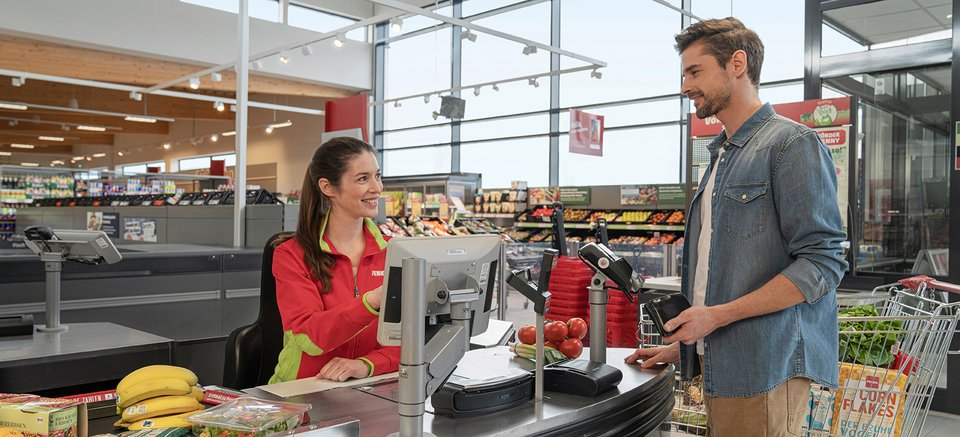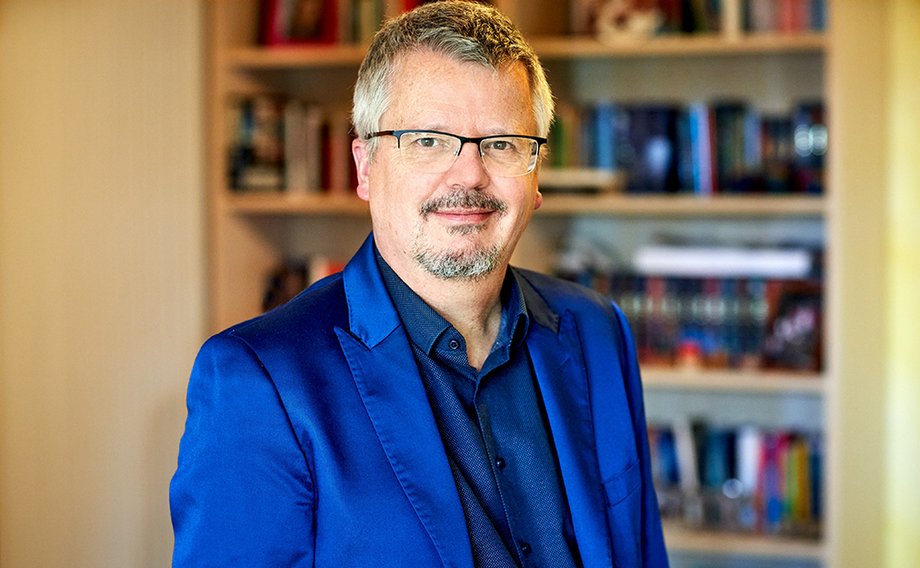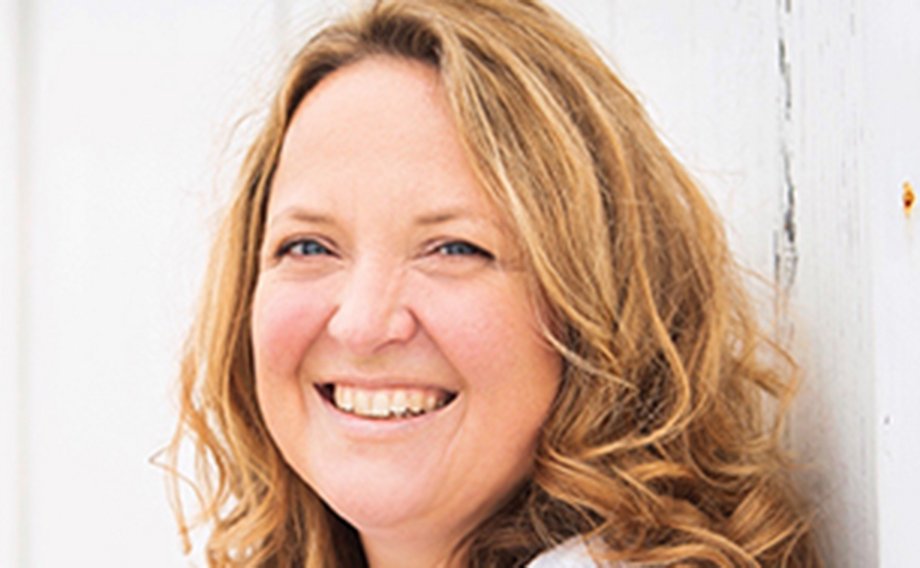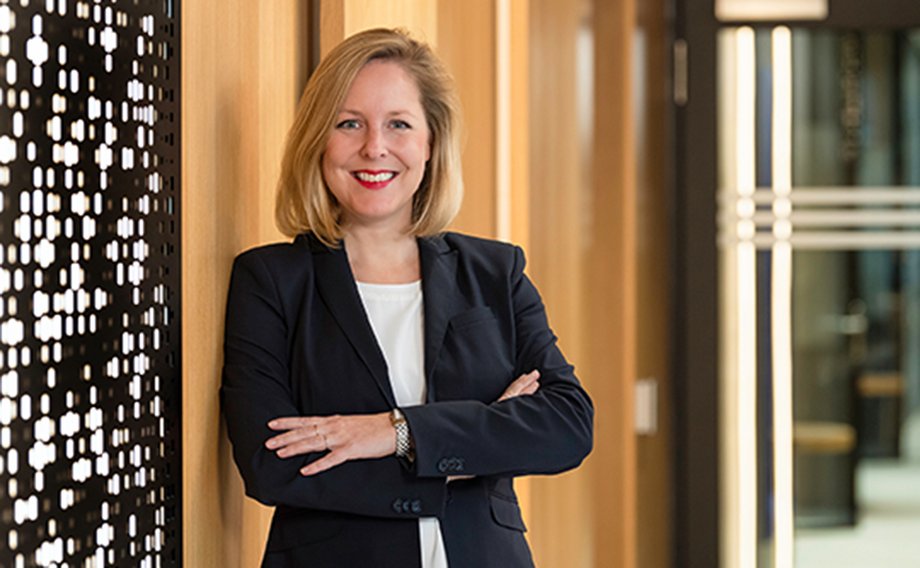
Robert Kecskes, Global Insights Director at GfK, Livia Kolmitz, Head of Corporate Communications and Public Affairs at Mondelez International and Kerstin May, Functional Head of Sustainability Communications at REWE Group, spoke in May about Sustainability, challenges in communications and the importance of staying power.
Whether shopping for fashion, food or other products, more and more consumers want to know how and under what conditions goods were produced and how manufacturers and retailers position themselves in terms of Sustainability. Why is this topic becoming increasingly important?
 Robert Kecskes: Crises are often the beginning of such a development. They shake up the younger generation of consumers in particular. Familiar patterns of behaviour are called into question. This began in 2008 with the financial crisis and continued with the climate crisis, the pandemic and now the war in Ukraine. Sustainability often gains immense momentum in such exceptional situations. The current situation is that people want to consume with pleasure, but at the same time they also feel a sense of responsibility. And not just ecologically, but also socially and now also geopolitically.
Robert Kecskes: Crises are often the beginning of such a development. They shake up the younger generation of consumers in particular. Familiar patterns of behaviour are called into question. This began in 2008 with the financial crisis and continued with the climate crisis, the pandemic and now the war in Ukraine. Sustainability often gains immense momentum in such exceptional situations. The current situation is that people want to consume with pleasure, but at the same time they also feel a sense of responsibility. And not just ecologically, but also socially and now also geopolitically.
 Kerstin May: Sustainability is no longer a sacrifice, but a further dimension of quality. It is a natural addition to the range of criteria that influence purchasing decisions. Consumers want a high-quality product and they want it to be sustainable. The pandemic has given this awareness another huge boost from a retailer's perspective. Suddenly, topics such as regionality, seasonality and organic have become even more important across all generations.
Kerstin May: Sustainability is no longer a sacrifice, but a further dimension of quality. It is a natural addition to the range of criteria that influence purchasing decisions. Consumers want a high-quality product and they want it to be sustainable. The pandemic has given this awareness another huge boost from a retailer's perspective. Suddenly, topics such as regionality, seasonality and organic have become even more important across all generations.
 Livia Kolmitz: Yes! We can also see that Sustainability has become much more important. Nevertheless, our recent study on snacks also showed that many consumers consider sweet snacks to be an important part of their lives. They want both sustainability and enjoyment. When it comes to chocolate, however, the number one purchase criterion is still flavour.
Livia Kolmitz: Yes! We can also see that Sustainability has become much more important. Nevertheless, our recent study on snacks also showed that many consumers consider sweet snacks to be an important part of their lives. They want both sustainability and enjoyment. When it comes to chocolate, however, the number one purchase criterion is still flavour.
Sustainability is a complex topic. Which aspects are particularly important to consumers?
Livia Kolmitz: Sustainability is indeed on everyone's lips, but many people ask themselves: What does that mean in concrete terms? Consumers have a great need for knowledge. For example, they want to know where the ingredients come from. Or: What happens in the supply chain? As a manufacturer, we have a duty to provide information and show what we do. Specifically, we at Mondelez launched the Cacoa Live cocoa sustainability programme a few years ago to support farmers in working in a more ecologically sound and economically effective way. Explaining this to consumers is complex. A label on the product packaging can only be an incentive to delve deeper into the topic, for example on the internet.
Kerstin May: In our view, the major sustainability issues are climate, animal welfare and packaging. They are interdependent. If you tried to convey these interrelationships on packaging, it would become complicated. That's why I think labelling is important. If you do labelling well and use it correctly, it can give customers a lot of guidance. This is because customers are exposed to a variety of influences in the market. They are in a hurry, may have children with them, are distracted - in such situations, they are not available for in-depth information on the topic of Sustainability.
Robert Kecskes: Customers want to trust the brand or market of their choice. They don't want to find out every time they make a purchase whether manufacturers and retailers are actually behaving sustainably. They want to have the feeling: What manufacturers and retailers are doing is okay. Nobody is demanding 100 per cent sustainable behaviour, but many consumers expect a move towards responsibility. Manufacturers and retailers need to show consumers what environmental and social challenges exist and address them transparently and credibly.
Kerstin May: That is very important: sustainability communication depends on honesty....
......and requires staying power.
Kerstin May: Definitely. Sustainability has been part of REWE Group's corporate strategy since 2008. Back then, our goal was to take Sustainability out of its niche. Together with manufacturers, suppliers and other stakeholders, we have succeeded in doing so. Today, Sustainability is anything but a niche topic. But we are nowhere near the end of the journey. The more we do, the more we realise how far we still have to go. And we can't wait any longer. We have to act now.
Livia Kolmitz: And that means all of us! The idea that manufacturers and retailers should do something is too short-sighted. Greater Sustainability is only possible if many players get involved. This includes consumers and politicians. After all, companies need certainty about the framework in which they are operating, where the journey is heading and how they want to achieve the goal.
To what extent has the pandemic influenced consumers' awareness of Sustainability?
Robert Kecskes: Corona has prompted people to ask more questions about Sustainability. Many have realised that there could be a connection: If we allow the rainforest to continue to be cut down, humans will come closer to wild animals. This in turn increases the risk of zoonoses, i.e. diseases that are transmitted from animals to humans. In addition, during the pandemic, when restaurants were closed and meetings were only possible to a limited extent, consumers catered for themselves very intensively. And this was often of a high quality and also sustainable. The financial resources were available, as the opportunities to spend money were severely restricted during the lockdown. This is why supermarkets gained market share during this time. They have managed to present themselves as places of safety, responsibility and social interaction.
Currently, the sharp rise in the cost of living is causing many consumers to reallocate their budgets. Are their sustainability standards also softening as a result?
Robert Kecskes: Many consumers have to cut back, but they don't want to give up their sustainability standards. So they are looking for creative alternative strategies. Private labels play a major role here. They fulfil the standards but are cheaper. Private labels are currently gaining market share, particularly in the premium and entry-level price segments. It is conceivable that this trend will continue.
Kerstin May: I assume that the issue of price perception will be much more prevalent in the near future than in previous years. But that doesn't mean that awareness of the dangers of climate change or the importance of greater animal welfare will disappear. At REWE and PENNY, our sustainability strategy has always focussed heavily on own brands. This is because we have the opportunity to influence manufacturers and suppliers and implement sustainability standards.
Livia Kolmitz: Yes, it is indeed possible that awareness of Sustainability will be overshadowed by other issues in the short term, such as inflation at the moment. But it will not disappear. For us at Mondelez, the importance of Sustainability remains high and we are continuously working towards the sustainability goals we have set ourselves.
In the current situation, do manufacturers and retailers perhaps even need to step up their efforts to increase Sustainability in order to keep awareness of the issue high?
Kerstin May: We will definitely continue with great vigour. Challenging times don't stop us from doing things that we think are important. Because when it comes to greater Sustainability, we have no time to lose. We have just announced that we will be supporting the climate fund, which we set up with NABU, with 25 million euros over the next five years for the renaturalisation of moors and wet meadows. This is another example of how climate protection projects should always be designed for the long term and as independently of the current economic environment as possible.
Robert Kecskes: Anyone who scales back their efforts in the area of Sustainability is jeopardising their economic success. Sustainability is an issue that is here to stay. It will become increasingly important in all areas of life.
Livia Kolmitz: I agree. Nevertheless, success will only be achieved if all players join in. One person alone will not be able to do it. Everyone involved should get involved where they can make the biggest difference. At Mondelez, this is particularly the case with the ingredients that are essential for our chocolate and biscuit products, cocoa and wheat. Our efforts are therefore focussed very strongly on achieving improvements in the supply chains there.
Kerstin May: We will all have to get used to living in a multi-crisis world. Crises don't occur one after the other, but at the same time. Offering customers security and guidance in this environment is a major challenge and an important role. All of us, whether manufacturers, retailers or other players, must not let up.
